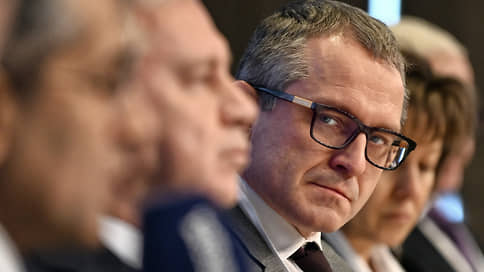The Ministry of Economy has been appointed to oversee the external economic activity of the regions
[ad_1]

The authorities have adjusted the model of building foreign economic relations at the regional level – now the Ministry of Economy will become the coordinator of this work, follows from the presidential decree. This should increase the effectiveness of horizontal ties through a unified foreign economic policy – the center’s attention to the topic is explained by the need for an accelerated reorientation of exports and imports to new markets due to sanctions. Experts support the idea, but a characteristic disadvantage of centralization may be the loss of flexibility and the lengthening of decision-making chains.
The Ministry of Economy received the authority to coordinate foreign economic relations of the subjects of the Russian Federation, follows from the decree signed by the president on the systematization of interaction between the federal center and the regions. The Ministry will provide explanations to the regions on the coordination of their foreign economic relations, collect information on contacts and their results, monitor and prepare proposals for development. This “will ensure the implementation of a unified state policy in the field of interregional cooperation, including in the EAEU and the CIS,” notes Dmitry Volvach, the relevant deputy head of the Ministry of Economy.
Now the activity of the regions is regulated by the law “On the coordination of international and foreign economic relations of the constituent entities of the Russian Federation” – they can negotiate and hold meetings with foreign partners, conclude agreements, open trade missions in foreign countries. However, as director of the Center for Regional Policy of the Institute for Applied Economic Research of the RANEPA Vladimir Klimanov explains, all this requires notification of the Ministry of Economy. “The ministry is the decision-making center in international activities,” agrees Alexander Daniltsev, director of the Trade Policy Institute at the National Research University Higher School of Economics. At the same time, the development of exports without the participation of the regions is impossible, since the regional authorities know the local specifics, but there are also limitations. “Interstate contacts are possible only at the federal level, the regions can build them at the regional level,” the expert adds.
The problem of the current model is the different activity of the regions. According to Alexander Daniltsev, border regions and regions with developed industries and agro-industrial complex are more active. Dmitry Panov, coordinator of Delovaya Rossiya for the Northwestern Federal District, says that each region builds external relations on its own, but, as a rule, there are no criteria for their effectiveness. “A region can hold dozens of business missions, forums, receptions, spending tens or even hundreds of millions of rubles on them and not get any effect in the form of investment, other significant projects or an increase in exports. There is another example, when regions consolidate resources for extended business missions, thereby optimizing costs and achieving a synergistic effect,” he points out.
Now the Russian Export Center (REC) is engaged in the development of export activities in the regions. In particular, he developed a regional export standard – a basic set of interrelated tools for developing and supporting exports, creating infrastructure, and involving regional government agencies and the business community in the implementation of export policy. The standard is being implemented with the methodological support of local authorities and the Ministry of Economy of regional export strategies. The REC adds that the decree will not affect the activities of the center, they will continue to work to increase the export potential of the regions.
Experts and businesses support strengthening the role of the Ministry of Economy in this process. “Coordination of the Ministry of Economy is necessary against the backdrop of a turn in foreign trade from Europe to Asia and the Middle East … The trend has reached the level of managing regional foreign economic relations and municipal ones,” explains Antonina Levashenko, head of the Russia-OECD Center of the RANEPA. Amendments to the law on the organization of local self-government in the Russian Federation have recently been adopted, which have consolidated the powers of municipalities in international cooperation. “Decisions are more of a formal-reinforcing nature, connected with the fact that the current foreign economic relations will develop in some new way. Many previously existing ties have ceased, and new partners are being sought,” Vladimir Klimanov adds.
RSPP Vice President Sergey Mytenkov notes the experience of the Ministry of Economy in building international relations. “Although the new conditions have reduced the opportunities for regional businesses to realize their export potential and the volume of imports from traditional partner countries, the emergence of a “single window” at the federal level, where you can turn to solve problems, increases the confidence of entrepreneurs,” he believes. According to Antonina Levashenko, the involvement of federal authorities becomes a factor in the regions’ access to financial opportunities for the implementation of large regional projects, but a negative aspect of any centralization can be an extension of the decision-making chain.
Diana Galieva, Tatiana Edovina
[ad_2]
Source link






